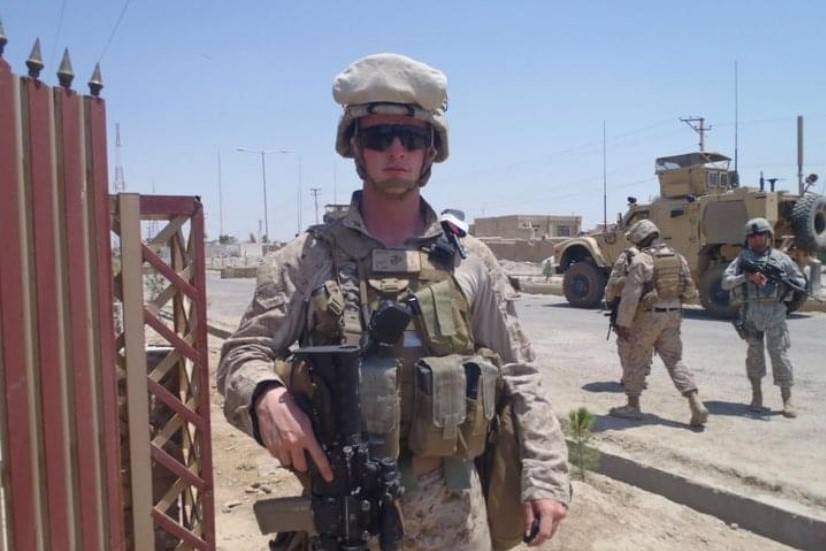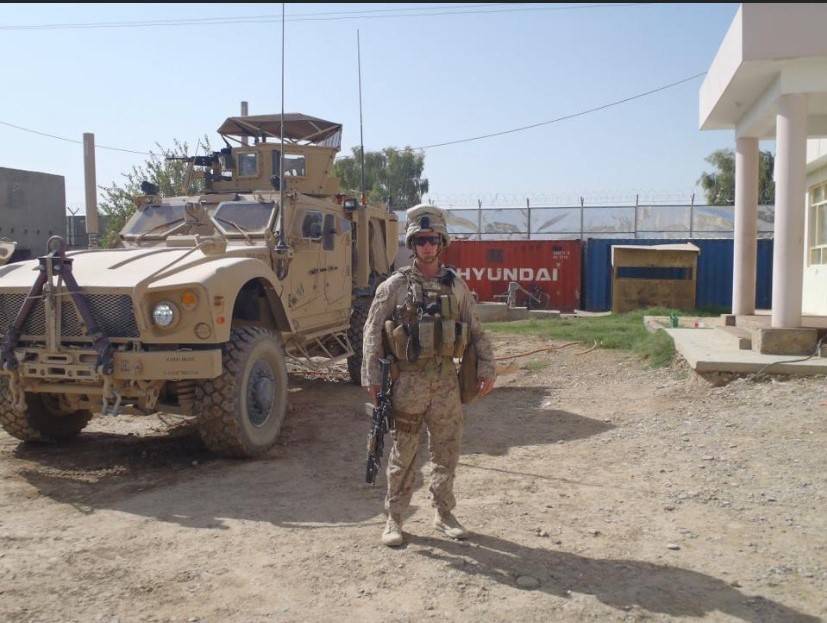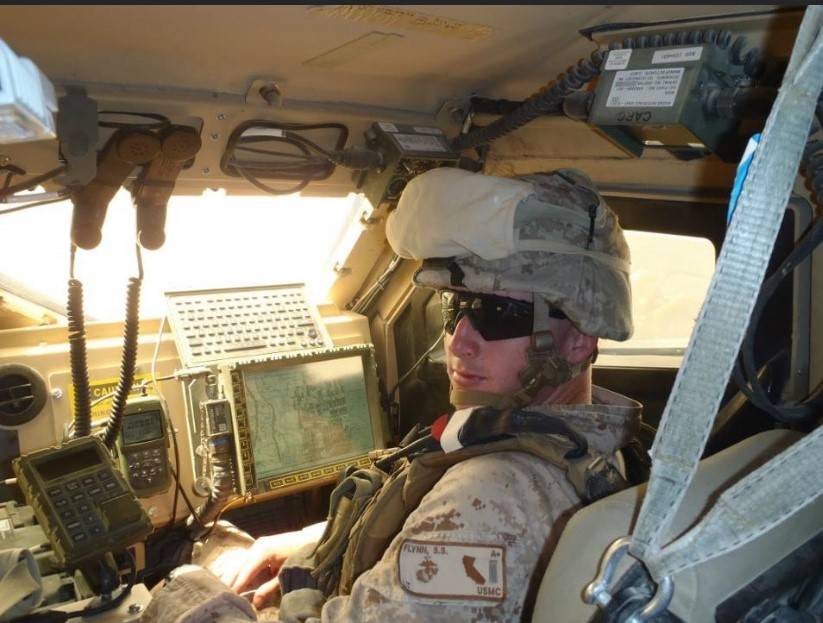How one Nevada veteran helped an Afghan family of 14 escape
After Marine Corps 1st Lt. Shamus Flynn was hit by a suicide bomb in 2011, the first face he saw was that of an Afghan interpreter.
The interpreter jumped out of another truck to check on him.
“They really do put their body in harm’s way every day. It’s a brutal job,” said Flynn, now a Nevada attorney. “They are looked at as traitors in their own country.”
And when the Taliban began to take hold of Afghanistan, he knew they and their families would be the most vulnerable.
Flynn is among scores of U.S. combat veterans working on their own to rescue the Afghans they worked alongside. He has focused his efforts on a family of 14 who pushed their way into the Kabul airport encircled by violent attacks and Taliban fighters, chasing a closing window to survive.
That window closed Monday — a day before President Joe Biden’s deadline for a complete pullout of troops, U.S. officials announced.
But, Flynn said, his efforts to help people escape are not over.
His Flynn Giudici Law Firm, which has attorneys in Reno and Las Vegas, will provide free immigration help to those who need it.
Grassroots effort
Flynn deployed to the Helmand province in Afghanistan in 2011 with a mission to train and advise the Afghan police, as well as provide security and escort.
Over the years, he kept in touch with his most trusted Afghan interpreters on social media.
When the Taliban started its takeover of Afghanistan nearly two weeks ago, Flynn sent one of them — a man whose covert military name is Nick — a message on Facebook.
The Las Vegas Review-Journal is not identifying Nick due to security concerns.
“I need some help; I need to get them out of there,” Nick wrote back.
Nick and his wife, both naturalized U.S. citizens, have three kids and live in Virginia.
But his mother, brothers, sisters, nieces and nephews were all stuck in Afghanistan.
Flynn and another former Marine, Mark Phillippe, sprung into action, networking with other veterans on Facebook, Signal and other channels.
First, they made sure everyone had the correct paperwork. Then came getting them through the bottleneck of thousands outside the gates to the airport.
The connection to active-duty military on the ground at the airport also was critical to strategically place families where they could get past Taliban checkpoints.
“It’s basically a battle of the will to get them through,” Flynn said. “You’re sort of trying to quarterback and guide them using the best information that you have from halfway across the world.”
The journey to Qatar
Nick’s relatives, who lived just outside Kabul, started their journey to the Hamid Karzai International Airport on Aug. 17.
Every eight hours, they would give an update on their location to Nick or Flynn.
One of Nick’s nieces — a girl around 11 years old who was paralyzed — had to ditch her wheelchair and be carried for four days. They were outside with barely any food and water.
Nick said he communicated on WhatsApp and got secret codes for his relatives to give to the Marines. He also was provided a specific gate and time for them to wait.
At Abbey Gate outside the airport, they waded in sewage water for hours. They were let into the airport Thursday, just hours before a suicide bomb killed more than 100 people, including 13 U.S. service members. One of the Marines whom Flynn had worked with also was injured in the blast.
Nick’s relatives are now at a U.S. Air Force base in Qatar and waiting for their next flight. There, nurses treated his paralyzed niece and she was provided a new wheelchair.
Nick is expecting them to make it to the U.S.
“This is the only country that can save their lives,” he said. “I’m going to try my best to keep them with me here to save their lives.”
‘The world’s worst place’
Nick was an interpreter for the U.S. military from 2004-12. He knew immediately that the job was dangerous. His cousin, with whom he got the job, was killed by a roadside bomb in 2007.
His riskiest assignment was at the Parwan Detention Facility, a military center where thousands of Taliban members were detained.
He would often speak and translate in front of the prisoners, and he was shown on TV many times while translating for general officers.
In 2018, his family received two threat letters in the form of night letters on their door. They specifically identified him and asked his younger brother and sister to surrender to the Taliban.
Without Flynn’s help, he said, he doesn’t believe that the majority of his family would have made it out. Nick, who is 37, said he would like his kids and future grandkids not to take their life in America for granted.
“The fact they were born in the U.S. doesn’t mean that everything came for free. I was the one who put my life on the front line,” he said. “I tell them to work hard, be thankful and keep the history in your mind that we are coming from a country that’s the world’s worst place right now.”
Contact Briana Erickson at berickson@reviewjournal.com or 702-387-5244. Follow @ByBrianaE on Twitter.





















